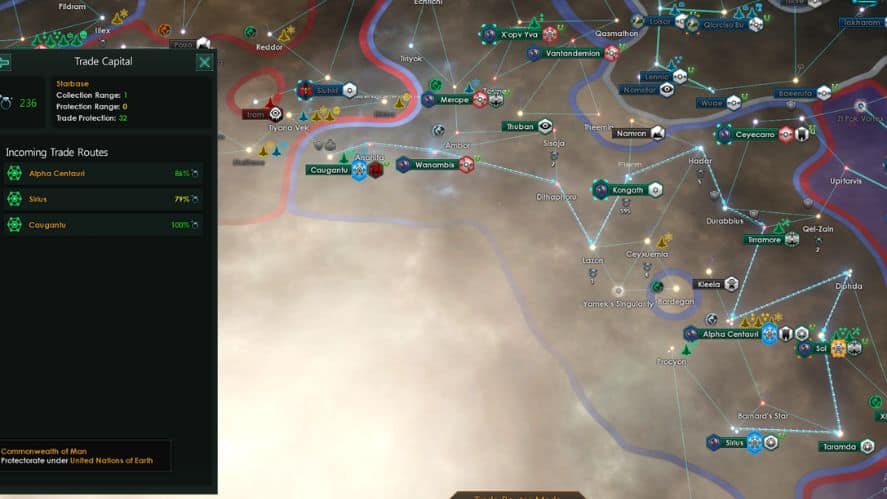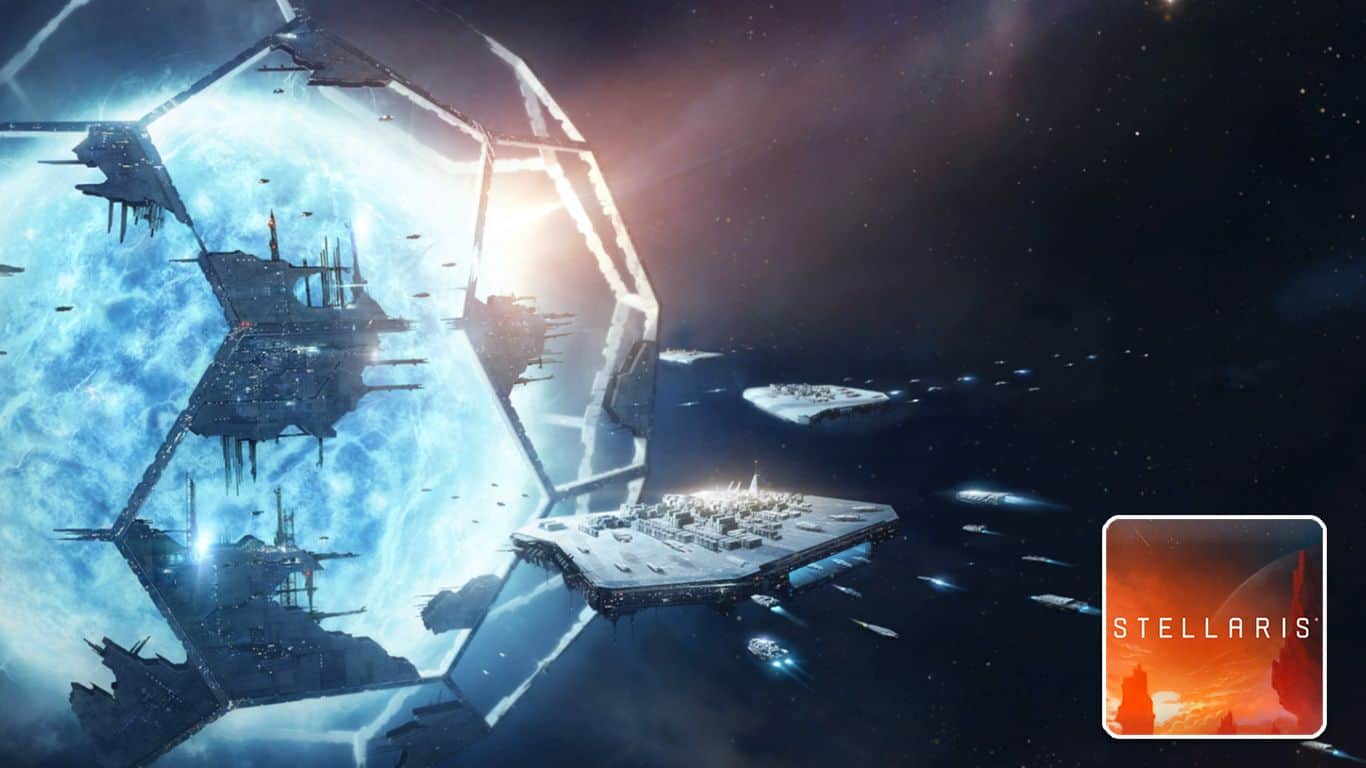Trade value is one of the most lucrative resources in the game. If effectively managed, it can provide high income to your empire.
The problem is that the game doesn’t do a very good job explaining how to exploit trade value. Newer players often ask themselves what is trade value and what does it do?
Recommended Read: How to Abandon a Planet in Stellaris
Once understood, trade value is an easy resource to manage. Unlike other traditional resources, which only produce one thing, trade value can be tailored to our current requirements.
Trade value is a numerical representation of the economic power of your empire. It is converted on a one-to-one basis for Energy Credits, Unity, and or Consumer goods. What trade value gets converted into depends on your empire’s trade policy.
Table of Contents
What is Trade Value in Stellaris?
A shining blue ring depicts trade value in the game. Colonized planets produce trade value, as do some celestial bodies; like stars or asteroids.
Unlike other space bourne resources, the collection is not automatic. Instead, trade value is collected by starbases and then transported along trade routes to your capital.
Trade routes are paths that connect all your starbases, leading back to your capital. Trade routes can only travel through your borders. If a route cannot be produced from a trade value source to your capital without leaving your borders, the trade value is lost. Trade routes are automatically produced but can be edited by the player.
Trade value that makes it back to the capital is turned into energy credits by default. Unlocking the adaptive economic policies tradition lets us change what trade value produces. Once unlocked, you can forego some energy production to make consumer goods or unity. if you are in a trade league federation, you also get this option.

A starbase can only collect trade value from the system it is in. With the use of upgrades and traditions; we can increase the collection range.
A trade hub module increases the collection range by plus one. Meaning it will collect all trade value in its system and all systems within 1 hyper lane jump. A maximum of 6 trade hubs can be built on a starbase. Each one will allow you to collect from even further away.
There is space for one Hyperlane Registrar Building on star bases; adding a +1 collection range. Finally, adopting the mercantile tradition will give all starbases a +1 collection range.
What Increases Trade Value?
Trade value is affected in two ways. Either a direct increase or a percentage modifier to already produced trade value. The best way to exploit trade value; is to get as many sources of it as you can and apply all the modifiers you have access to.
All pops in the game produce trade value. It is only a small amount and is determined by the pops living standard. Often the better the standard, the more trade they produce.
Pop jobs are a great source of trade. Clerks and merchants both add a lot of trade value to a planet.
The Offworld Trading Company starbase building gives +2 trade value for every Trade Hub on board. This caps at 12 per star base.
A variety of civics and traits can provide modifiers to your empire’s trade output. A few of these will need the MegaCorp DLC.
A planet’s stability can provide either a positive or negative modifier. You receive a positive modifier for every point over 50 and a negative for every point below 50.
Your planet’s and space habitats all have a designation. Designations provide buffs to planetary production. If you choose to buff trade value, it provides a 20 percent increase in the colony’s trade value.
Buildings and corporate holdings have the power to boost your trade potential. There is a lot of them, so be sure to read the building descriptions when looking to increase trade.
That is everything you need to know about what trade value is. It is mostly passive progress, but being aware of it and knowing how to maximize your wealth is key to an empire’s survival.
If you have any suggestions for this guide, please let us know in the comments section. Good luck with space trading.




